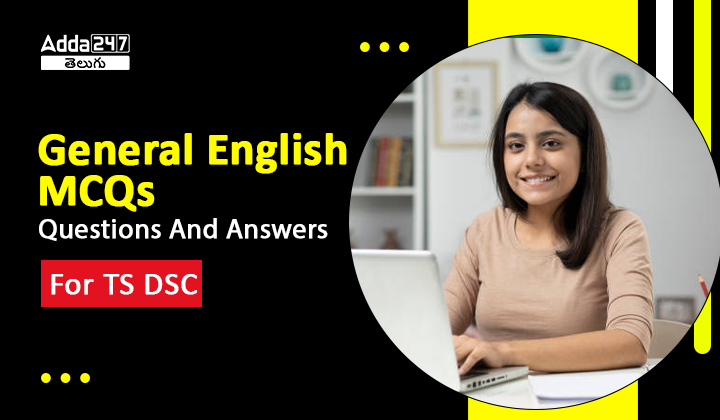General English MCQs Questions And Answers: English is one of the most important scoring subjects for all TS And AP State level exams like TS DSC. In this article we are providing General English MCQs Questions and answers, these MCQ questions and answers will definitely help in your success.
General English MCQs Questions And Answers: ఆంధ్రప్రదేశ్ మరియు తెలంగాణ లో అత్యంత ముఖ్యమైన మరియు ప్రతిష్టాత్మకమైన పరీక్షలు పోలీస్ మరియు గ్రూప్-1,2,3 అలాగే UPSC లలోనికి చాలా మంది ఆశావహులు ఈ ప్రతిష్టాత్మక ఉద్యోగాల్లో కి ప్రవేశించడానికి ఆసక్తి చూపుతారు.దీనికి పోటీ ఎక్కువగా ఉండడం కారణంగా, అధిక వెయిటేజీ సంబంధిత సబ్జెక్టులను ఎంచుకుని స్మార్ట్ అధ్యయనంతో ఉద్యోగం పొందవచ్చు. ఈ పరీక్షలలో ముఖ్యమైన అంశాలు అయిన పౌర శాస్త్రం , చరిత్ర , భూగోళశాస్త్రం, ఆర్ధిక శాస్త్రం, సైన్సు మరియు విజ్ఞానం, సమకాలీన అంశాలు చాల ముఖ్యమైన పాత్ర పోషిస్తాయి. కాబట్టి Adda247, ఈ అంశాలకి సంబంధించిన కొన్ని ముఖ్యమైన ప్రశ్నలను మీకు అందిస్తుంది. ఈ పరీక్షలపై ఆసక్తి ఉన్న అభ్యర్థులు దిగువ ఉన్న ప్రశ్నలను పరిశీలించండి.
APPSC/TSPSC Sure shot Selection Group
General English MCQs Questions And Answers
General English-Questions
Q1. Fill in the blank with the most appropriate word.
The concert was amazing, but it was ____________ short.
(a) Terrible
(b) Something
(c) Unfortunately
(d) Too
Q2. Choose the option that is the correct passive form of the sentence. John built a sandcastle on the beach.
(a) A sandcastle was built on the beach by John.
(b) The beach was where John built a sandcastle.
(c) A sandcastle were built by John on the beach.
(d) The beach had a sandcastle built by John.
Q3. Choose the incorrectly spelt word.
(a) Calibrate
(b) Conoissuer
(c) Tyranny
(d) Auxiliary
Q4. Select the correct indirect form of the given sentence.
“I can’t believe I passed the exam,” said Sarah. “I was sure I had failed.” (a) Sarah said that she can’t believe she had passed the exam and added that she has been sure she had failed.
(b) Sarah said that she had passed the exam and was surprised that she had done so well.
(c) Sarah said that she couldn’t believe she had passed the exam and added that she had been sure she had failed.
(d) Sarah exclaimed that she couldn’t believe she have passed the exam and added that she have been sure she had failed.
Q5. Improve the highlighted part of the sentence. Choose ‘No improvement’ as an answer if the sentence is grammatically correct.
My friend and benefactor have come.
(a) has come
(b) are coming
(c) have came
(d) No improvement
Q6. Select the most appropriate option to fill in the blank. If you practice playing the piano every day, you will ____________ skills related to playing piano.
(a) acquire
(b) obtain
(c) receive
(d) possess
Q7. Select the most appropriate synonym of the given word.
Extravagant
(a) Modest
(b) Simple
(c) Costly
(d) Humble
Q8. Select the most appropriate option to fill in the blank.
I have ___________ finished reading the book that you recommended.
(a) hardly
(b) already
(c) soon
(d) recently
Q9. Choose the correctly spelled word.
(a) Reliabel
(b) Reciept
(c) Mischievious
(d) Archeology
Q10. Select the correct active form of the given sentence:
The concert will be attended by thousands of people.
(a) Thousands of people will attend the concert.
(b) Thousands of people will be attending the concert.
(c) Thousands of people would attend the concert.
(d) Thousands of people would be attending the concert.
Solutions:
S1. Ans. (d)
Sol. Use “too” to fill in the blank.
- Terrible extremely bad or serious.
- Something a thing that is unspecified or unknown.
- Unfortunately, is an adverb that expresses regrettable or unfavorable circumstances.
- Too is an adverb that expresses excess or more than is necessary. “too” is the most suitable option to fill in the blank.
S2. Ans. (a)
Sol. The correct passive form of the given sentence is option (a) that is: A sandcastle was built on the beach by John.
- The passive voice of a sentence is formed by making the object of the active sentence the subject of the passive sentence and using the appropriate form of the verb “to be” (am, is, are, was, were, being, been) and the past participle form of the main verb.
- In this case, “John built a sandcastle on the beach” is in the active voice, with “John” as the subject and “sandcastle” as the object. To convert this sentence into passive voice, we make “sandcastle” the subject, “built” becomes “was built,” and “John” becomes “by John.”
- option b is not a correct passive form of the sentence because it does not have a clear subject-verb-object structure. Instead, it is an adverbial phrase that explains the location of where John built the sandcastle.
- Option c is not a correct passive form of the sentence because the verb “were built” is incorrect. “Were” is the past tense form of “are,” but in the passive voice, we use “was built” for a singular subject. Additionally, “sandcastle” is singular, so it should be “A sandcastle was built by John on the beach.”
- Option d is a grammatically correct sentence, but it is not a passive form of the original sentence. In this sentence, “had” is the main verb, and “built” is the past
participle form of the verb “to build.” However, this sentence does not use the correct structure for forming passive sentences.
S3. Ans. (b)
Sol. Option b “conoisseur” is wrongly spelt. Correct word is “connoisseur” which means a person who has expert knowledge, understanding, or appreciation of a particular field. Meaning of other words-
- Calibrate is a verb that means to adjust, standardize, or fine-tune a measuring instrument or device to ensure its accuracy and precision.
- Tyranny is a noun that refers to a cruel and oppressive government or rule, often characterized by the abuse of power, authority, or control.
- Auxiliary is an adjective that describes something that provides supplementary or additional support, assistance, or help, often used to describe a backup or secondary system.
S4. Ans. (c)
Sol. Option c is the correct indirect form of the given sentence.
In this case, the reporting verb “said” is in the past tense, so we need to change the tense of the verb in the reported speech accordingly.
The given sentence is in the present tense, “I can’t believe I passed the exam,” and the past tense, “I was sure I had failed.” To convert it into indirect speech, we need to change the verb tenses to past tense. Therefore, “can’t” becomes “couldn’t” and “was” becomes “had been.”
- Option (a) is incorrect because it uses the present tense “has been sure,” which does not match the past tense of the reporting verb.
- Option (b) is incorrect because it only uses the first part of the given sentence (“Sarah said that she had passed the exam”), and does not include the second part (“I was sure I had failed”).
- Option (d) is incorrect because it uses the present tense “have passed” and “have been sure,” which do not match the past tense of the reporting verb. Additionally, “exclaimed” is not an appropriate reporting verb for this sentence as it does not accurately reflect the tone or context of the original statement.
S5. Ans. (a)
Sol. “Have come” should be replaced with “has come”.
My friend and benefactor which is used to describe someone who is both a close friend and a person who has provided significant help or assistance to you is a singular subject therefore, singular form of verb “has” should be used in place of “have”.
S6. Ans. (a)
Sol. Use “acquire” to fill in the blank.
- Acquire – to gain or develop a skill, ability, or quality through practice, experience, or learning.
- Obtain – to get something, especially by making an effort.
- Receive – to be given or presented with something, often as a gift or payment. • Possess – to own something, or to have a particular quality or characteristic. “Acquire” is the most suitable option.
S7. Ans. (c)
Sol. Option c is correct.
Extravagant– refers to something that is excessive or goes beyond what is reasonable or necessary.
Synonyms- Lavish, Immoderate, Prodigal, Excessive, Costly.
Antonyms- Frugal, Thrifty, Economical, Modest.
Meanings of other words-
- Modest – having a humble or moderate opinion of one’s abilities, achievements, or appearance; not excessive or showy.
- Simple – not complicated or elaborate; easy to understand or do.
- Costly – having a high price or value; expensive.
- Humble – having a modest or low view of one’s own importance; not proud or arrogant.
S8. Ans. (b)
Sol. Option b is correct.
The word “already” is used to indicate that something has been completed or happened before the present time.
In this sentence, “already” is the most appropriate option to fill in the blank as it indicates that the speaker has finished reading the book that was recommended to them, and the action has already taken place.
- Option (a) “hardly” means barely or almost not at all, which is not appropriate in this sentence as it would convey the opposite meaning.
- Option (c) “soon” means in the near future or shortly, which is not appropriate in this sentence as it does not convey that the action has already taken place.
- Option (d) “recently” means in the recent past, which could be a possible option to fill in the blank, but it does not convey that the action has already taken place, and it is not as appropriate as option (b) “already” in this context.
S9. Ans. (d)
Sol. Option d “Archeology” is the correctly spelled word which means the scientific study of human history and prehistory through the excavation and analysis of artifacts, structures, and other physical remains.
Meaning of other corrected words-
- Reliable – able to be trusted or believed; dependable; consistent in performance or behavior.
- Receipt – a written or printed statement acknowledging that something has been paid for or received; proof of purchase or payment.
- Mischievous – causing or showing a fondness for causing trouble in a playful way; teasing or annoying in a playful manner; likely to cause harm or damage.
S10. Ans. (a)
Sol. Option a is the correct active form of the given sentence.
Rule for changing passive to active form
The given sentence is future tense (passive form).
Object + auxiliary verb (will, shall) + be + past participle + by + subject →← Subject + verb (will, shall) + object.
According to above rule,
“Thousands of people will attend the concert.” is the correct active form of the given sentence.
| మరింత చదవండి |
|
| తాజా ఉద్యోగ ప్రకటనలు | ఇక్కడ క్లిక్ చేయండి |
| ఉచిత స్టడీ మెటీరియల్ (APPSC, TSPSC) | ఇక్కడ క్లిక్ చేయండి |
| ఉచిత మాక్ టెస్టులు | ఇక్కడ క్లిక్ చేయండి |





